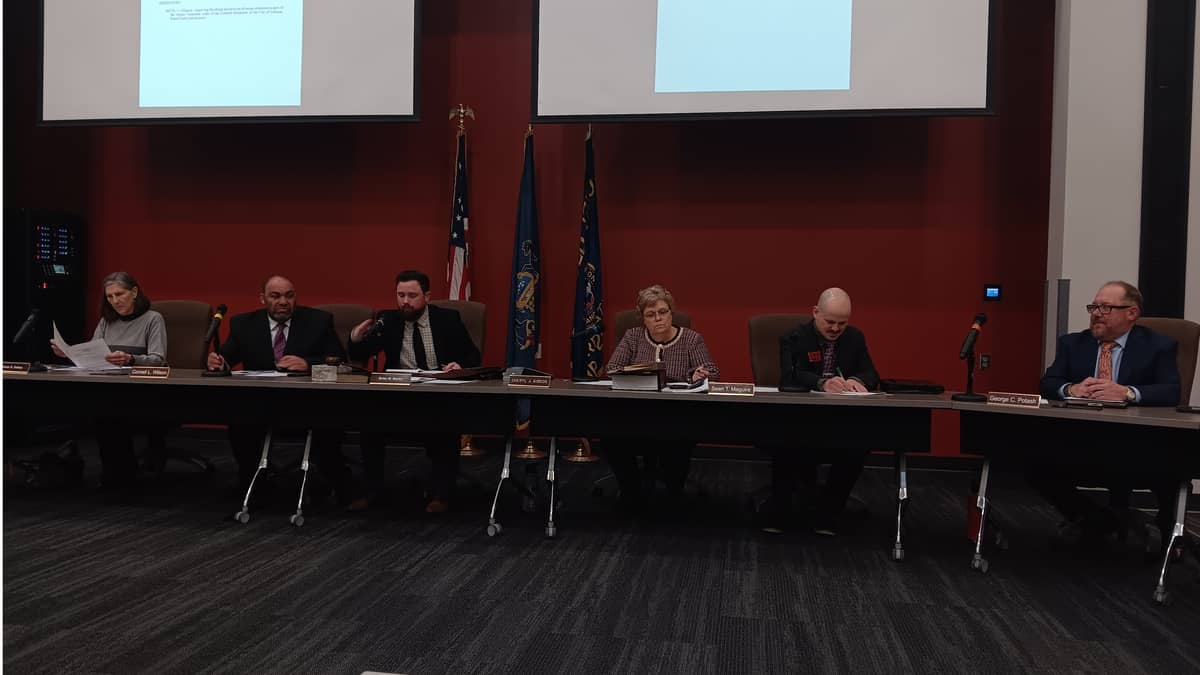Douglas E. Hill is the executive director of the County Commissioners Association of Pennsylvania.
Do you know how often you use the services and programs provided by your county government? When you go to the courthouse for jury duty or to get a marriage license, it’s obvious that you are interacting with your county. But it’s not so obvious when you call 911. Or when you go to vote. Or when you drive over one of the 4,000 bridges owned by Pennsylvania’s counties. Or how about when you call ChildLine to report a case of suspected child abuse – it’s the county that’s responsible for investigating.
The truth is, unless you have a reason to use the service, you probably aren’t aware of all that counties do. And you’re even less likely to be aware that counties provide these services under mandates from the state and federal government.
Even though mandated to provide these services, counties do so with pride, with an eye both for the quality for the service recipient and for the value to the taxpayer. Ideally, this would mean that all levels of government would work in partnership to assure programs and services are designed and funded in a way that provides the best quality in the most cost-effective way.
Unfortunately, though, this partnership has eroded over time. Too often, counties face an ongoing reality of stagnant – or even declining – state funding, even in the face of expanding demand for service. And when state funding fails to keep up with service demands or mandated requirements, the only place counties have to turn to make up the difference is the county property tax.
There are some bright spots in this picture, though. For instance, last fall the Department of State entered into a settlement agreement with the Stein presidential campaign that will require replacement of existing voting systems with voter-verifiable paper trail equipment by the April 2020 primary. Without state funding to help cover the cost, counties – and county property taxpayers – will be entirely responsible.
Gov. Wolf indicated he planned to seek state funding of at least 50 percent of the cost of new systems. He followed through in his FY 2019-2020 budget address with a proposal of $15 million in grants to counties for new election machines, as the first of a five-year plan that would ultimately total $75, half of their cost estimate. While the Governor’s plan represents a positive first step in the upcoming budget discussions, counties’ 2019 priority is to continue to work with their state partners to achieve maximum funding for equipment replacement. In addition, counties ask for the funding schedule to be shortened to a single year to match the timeframe they have to purchase machines.
But in most other cases, counties find themselves living the same scenario – advocating against a decade of cuts in state funding for county services, while crossing their fingers maybe this will be the year when critical increases could be achieved. After all, the commonwealth and its county partners must work together to fully support the needs of our most vulnerable citizens.
Efficient service delivery is every bit as important as adequate funding. Counties also want to build a stronger partnership when it comes to determining how programs and services should be operated at the local level to best meet the needs of citizens. For that to happen, counties must be brought to the table earlier in the decision-making process when the state wants to make changes to the way people are served.
Just last year, counties saw how last-minute legislative changes to the Medical Assistance Transportation Program – changes without county knowledge, much less input – will have unintended consequences for service recipients. And this year, citizens who benefit from the Behavioral HealthChoices program, a Medicaid managed care program for mental health and substance abuse services, could see the access to and quality of care they currently receive threatened by legislative attempts to take counties out of the driver’s seat.
The county voice and county experience can be extremely valuable as lawmakers make policy in Harrisburg, but only if heard in a meaningful way and early enough for legislators to appreciate both the details and how they fit into the big picture of service delivery. Pennsylvania must break its historic cycle and find a different tomorrow, one where counties, the administration and the General Assembly work together to meet our state’s challenges. Otherwise that history will keep repeating itself, stretching county property taxpayers to the breaking point and diminishing the quality of county services that touch Pennsylvania’s lives every day – whether you are aware of those services or not.

























